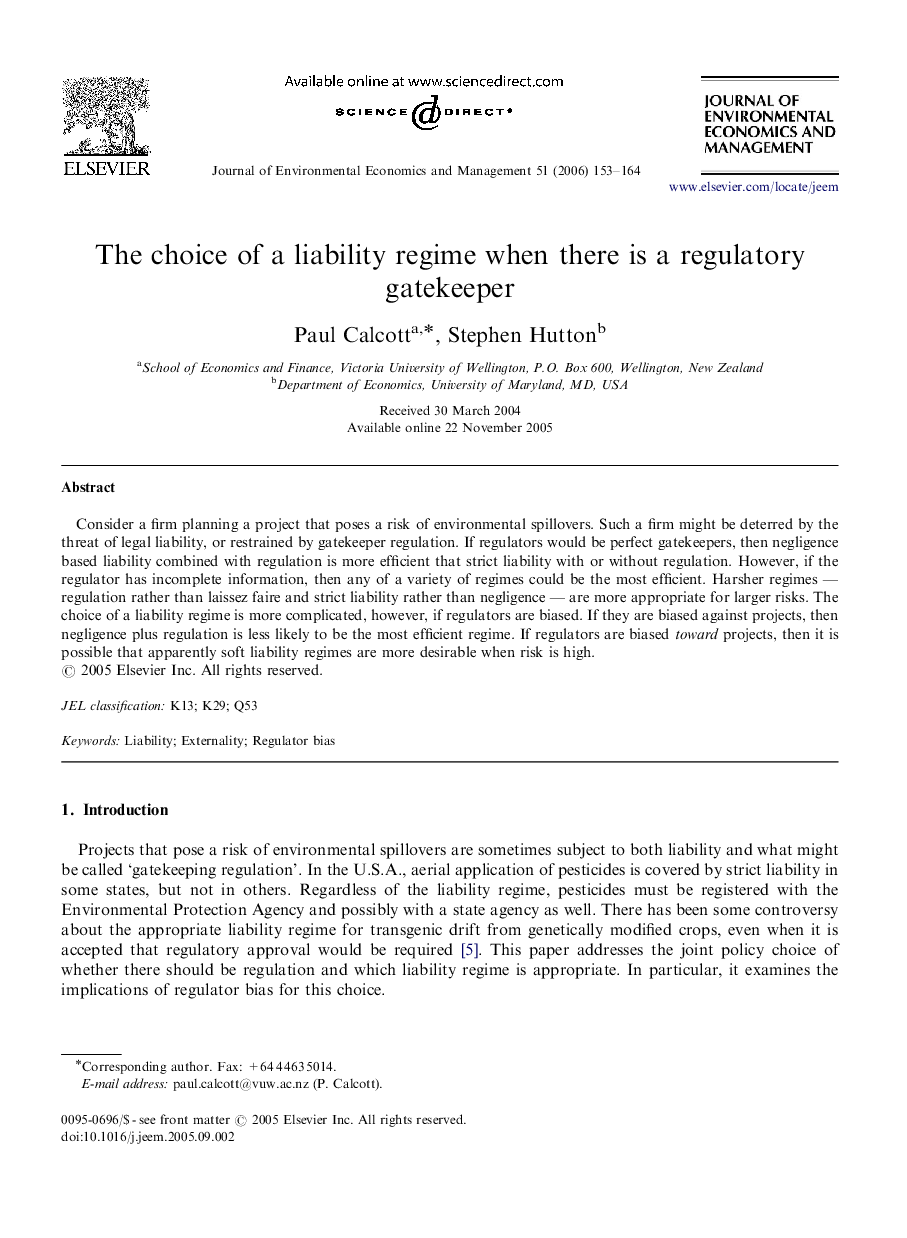| Article ID | Journal | Published Year | Pages | File Type |
|---|---|---|---|---|
| 959410 | Journal of Environmental Economics and Management | 2006 | 12 Pages |
Abstract
Consider a firm planning a project that poses a risk of environmental spillovers. Such a firm might be deterred by the threat of legal liability, or restrained by gatekeeper regulation. If regulators would be perfect gatekeepers, then negligence based liability combined with regulation is more efficient that strict liability with or without regulation. However, if the regulator has incomplete information, then any of a variety of regimes could be the most efficient. Harsher regimes - regulation rather than laissez faire and strict liability rather than negligence - are more appropriate for larger risks. The choice of a liability regime is more complicated, however, if regulators are biased. If they are biased against projects, then negligence plus regulation is less likely to be the most efficient regime. If regulators are biased toward projects, then it is possible that apparently soft liability regimes are more desirable when risk is high.
Keywords
Related Topics
Social Sciences and Humanities
Economics, Econometrics and Finance
Economics and Econometrics
Authors
Paul Calcott, Stephen Hutton,
